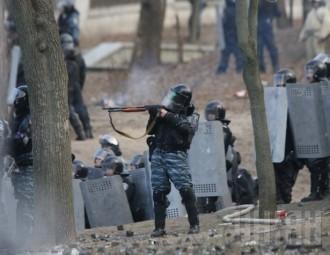Uladzimir Matskevich: Ukraine’s future depends on whether Maidan will be peaceful

Radicalization of Maidan will bring no good for both the parties at issue.
After yet another aggravation of Kiev events a number of media introduce the notion of “revolution”. But is it revolution that is unfolding in Ukraine now? EuroBelarus Information Service discussed this question with Uladzimir Matskevich, the head of the Board of the International Consortium “EuroBelarus”.
- Though the events in Kiev are coming to an end, I wouldn’t call it revolution. Let us recall the beginning of Euromaidan – nobody suggested changing the power. The protest evoke due to the actions of the Cabinet of Ministers under Nikolai Azarov and due to the rejection to sign the Association Agreement with the EU. Even if the attempt of forceful Maidan’s disperse has actually made it even larger, change of power was not at issue. On the one hand, Ukraine doesn’t have legislation that describes impeachment procedure and resignation of Verkhovna Rada. The other problem was deficiency of goals. As I have earlier said, today Ukraine lacks political force and political leaders, who can put forth clear and feasible conditions to Yanukovich, so that Maidan could break up, feeling that its mission is completed.
- Current events suggest that both the sides wanted to aggravate the situation. Is it because people got tired of standing still?
- Long-term actions require constant presence of drive, so to say. People get tired, after three months of staying they divide themselves into more radical and less radical, new faces appear, etc. I see serious danger in Maidan’s radicalization, as it the peaceful character of the protest that makes Maidan so strong and so consolidated. And current events seriously challenge Maidan with the problem of how to restrain the radicals who, in their turn, might think that the opposition leaders are too feeble. The authorities won’t bother themselves with clarifying whom to beat; further escalation of aggression will be of no good for Ukraine. And the opposition is hardly ready for the armed confrontation on a national scale. Thus, a lot will depend on whether Ukraine manages to settle the conflict by peaceful means.
- After the events of January 19 Mass Media compares Ukraine with Belarus, talking about the appearance of yet another dictatorship in Europe. Are such comparisons appropriate there?
- Yes, they are indeed. However, we shouldn’t forget that Belarusan regime has been illegitimate for a long time, while Viktar Yanukovich is a democratically elected legitimate president. And that is the difference. Actions that authorities have been undertaking were legitimate. Violations of human rights did take place and militia exceeded its powers; however, the authorities can always make performers responsible for that. Whereas Belarusan authorities have never hesitated to use force. Besides, the attention of the whole world is on Ukraine now; and events in Belarus have never drawn such a wide response, which added to the triumph of the Belarusan regime. Moreover, economic situation in Belarus has been much better than the today’s Ukrainian situation. And economic hardships are closely connected with Ukraine’s political life. Thus, if economic problems are aggravating, then the force used by Ukrainian authorities will destabilize the whole country and lead to unfortunate results for Ukrainian statehood.
-
03.01
-
07.10
-
22.09
-
17.08
-
12.08
-
30.09










































